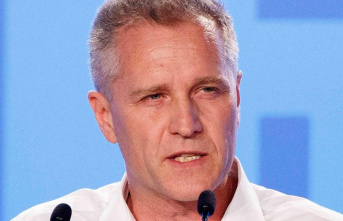The traffic light coalition expects gas and electricity prices to rise, some of them sharply, over the next few months. With its third relief package, it is therefore planning the following measures:
Electricity price brake: Private households should receive the amount of electricity for basic consumption at a discounted price. This should also apply to small and medium-sized companies with utility tariffs. The price brake is to be financed with revenue from a new revenue cap for energy companies. In addition, the grid fees relevant to the electricity price, which are expected to increase, are to be subsidised. Today the CO2 price is 30 euros per tonne.
- Pension: Pensioners should receive a one-time energy price lump sum of 300 euros from the pension insurance on December 1st. You had gone away empty-handed with the first flat rate for working people. Because of the tax liability, the lump sum has a greater effect on a low pension.
- Students: Students and vocational school students should receive a one-time payment of 200 euros. The federal government wants to discuss a quick payment with the states.
Housing benefit: A further heating cost subsidy is to go to those receiving housing benefit in the autumn. It is a one-off fee of 415 euros for a 1-person household. In the course of the housing benefit reform planned for the beginning of the year, it should then become a permanent component of the housing benefit. In addition, the group of people entitled to housing benefit is to be expanded to two million citizens. At the end of 2020, according to the Statistics Office, 618,200 households had received housing benefit. This is to be achieved through a "paradigm shift" (Chancellor Olaf Scholz): In the future, when calculating the rates, the inflation to be expected in the year of the adjustment is to be taken into account - previously only past values were used.Midi-Jobs: employment just above the mini- Job threshold with lower social contributions should be eased. The so-called midi jobs should in future be able to earn up to 2000 euros a month. Tax relief: 48 million citizens should be relieved of taxes. To this end, adjustment screws of the income tax rate should be turned. Tax increases due to inflation should be prevented. Because the so-called cold progression threatens many people, among other things, that their purchasing power will fall. The increase should apply to 2023/2024. Today, the child benefit is 219 euros for the first and second child. The child allowance for low-income families should increase to 250 euros per month from January 1st. Tax-free premium: The federal government offers employers and employees that it waives taxes and duties if companies make additional payments to their employees of up to 3000 euros provide. Business aid: Energy-intensive companies that cannot pass on cost increases are to be supported with a new program. The peak equalization in electricity and energy taxes is to be extended by another year. Existing corporate aid, including low-interest loans and extended guarantees, are to be extended until December 31st. Steps are being examined for companies that have to temporarily stop production due to a lack of gas and high energy prices. Local transport: After the 9-euro ticket, a local transport ticket is to be introduced - usable nationwide, bookable digitally, as a subscription ticket. Price: 49 to 69 euros. The federal government wants to subsidize 1.5 billion euros if the federal states pay at least as much. Short-time work, gastronomy, tenants: A simplified access to short-time work introduced due to the Corona downturn is to be extended - as is the reduction in sales tax for food in gastronomy to 7 percent. If necessary, tenants should be protected from being overwhelmed by increasing advance payments for ancillary costs. Electricity and gas cuts should be avoided. Further tax measures: Taxpayers should be able to fully deduct their pension contributions from January 1st; Pensions are to be taxed in the payment phase in the future. With a reduction in sales tax on gas to 7 percent on October 1, the gas surcharge is to be balanced. The home office flat rate, which has been extended until the end of 2022, is to be made permanent and improved.












